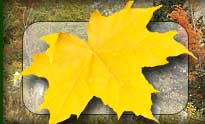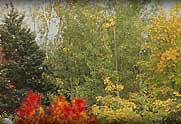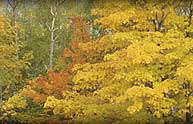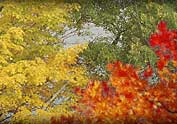Seed Choices
In the backyard songbird feeding world, there are really only 7 basic seeds, black oil sunflower, gray-striped sunflower, safflower, #2 split peanuts, nyjer, cracked corn and white proso millet. I have not mentioned other ingredients that birders may find in many mixes such as milo, wheat, oats, weed seed, flax and assorted grain products. These are primarily game bird food that will attract ducks, pheasant, geese, grouse, etc. Seed companies put in these low cost ingredients to keep the prices down, but do little to attract songbirds. All seed birds may nibble on these ground foods but cannot sustain themselves on these kinds of seeds.
Decades ago, gray-striped sunflower was the only choice for backyard birders. It has a large, hard shell that large birds such as grosbeaks and cardinals with their cone-shaped beaks can readily crack. Later on, black oil sunflower seeds were developed and have been the favorite choice of all sunflower seeds. The small, soft shell makes it attractive to most songbirds, including chickadee, nuthatches, titmice, finches, sickens and other seed eating birds. Large birds will also eat black oil. In New England, black oil sunflower should be present in every backyard that wishes to attract songbirds. Many people serve it exclusively. Black oil will attract approximately 65% of all seed eating birds in Eastern America.
Safflower seed is used in the making of safflower cooking oil. It has a high-fat content just like sunflower seeds, but is not indigenous to this area, hence songbirds may not initially eat it. However, once taken, most sunflower eating songbirds relish it. Safflower seeds should be a part of your backyard. Cardinals and grosbeaks go to it right away. One good aspect of this unusual seed is the bitter taste. Squirrels shy away from it, but birds are not affected due to a lack of taste buds.
We recommend customers try it on window feeders. These easily accessible feeders may not stop a squirrel, but the bitter safflower helps keep these critters at bay. We only serve safflower in our window feeders and it works fine! You have to be patient, though. It may take time for your birds to accept this non-native ingredient.
Split peanuts are an excellent source of fat. Fat is life. The more fat, the more energy for flying and keeping warm. Split peanuts offer twice as much fat as sunflower seeds. Birds love them. We recommend split peanuts over peanut hearts. The chopped-up hearts seem to attract nuisance birds such as starlings and grackles more than splits. Also, the much larger split peanuts work better in bird feeders.
Nyjer is an imported seed from Nepal, Sudan, Ethiopia or India where the climates are more conducive for growth. It is not grown in North America commercially. Farmers abhor its invasive attributes. Consumers mistakenly confuse this seed with thistle, a naturally growing weed seed found on most road-sides. Nyjer is most attractive to goldfinches. We always recommend that this tiny, high-fat seed be served in a special nyjer-only feeder. Nyjer has a small shell the finches have to crack to get at the thin, wisp of meat inside. The black mess you see on the ground is probably the discarded shells.
Cracked corn and white proso millet are the two remaining ingredients that should be the least prevalent in all mixes. These high-fiber seeds are good for your ground feeding songbirds such as sparrows, juncos and mourning doves.
By law, all seed mixes have to list fat, protein and fiber content on the packages. Use our "Lucky 13" rule! Any mix with a fat content 13% or higher is an excellent choice for all bird feeders. Mixes less than that should be served on the ground or in open trays. This rule eliminates having to learn all the confusing ingredients you will find in hundreds of choices available in stores.
Next month, the history of backyard bird feeding. Do you know which country started backyard bird feeding? It wasn't the USA and Americans were not the ones who "discovered" sunflower seeds as a crop. Can you guess?
|



